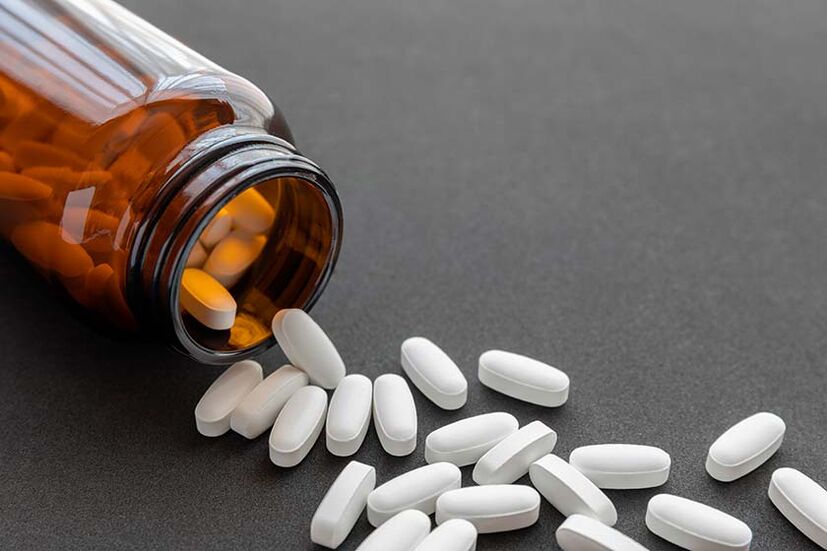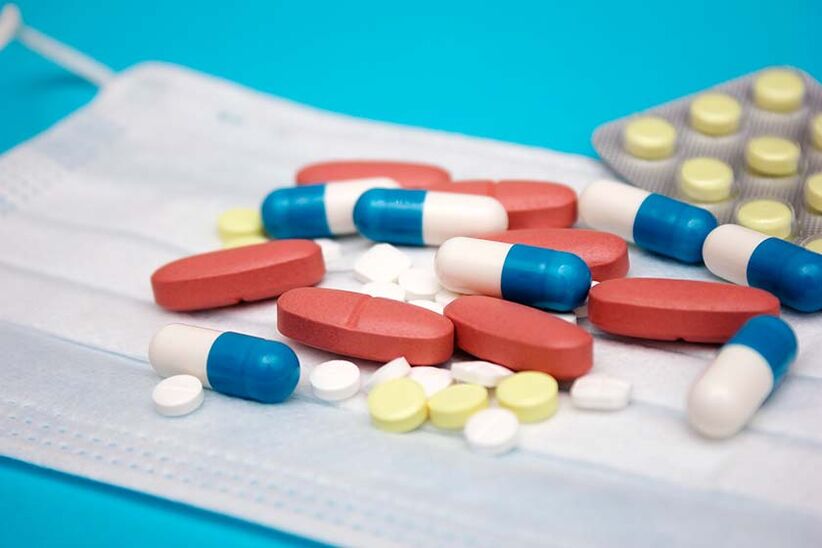Scientists disagree that alcohol is compatible with antibacterial drugs.Some experts suggest that taking alcohol after completing the treatment process will not lead to deterioration of health.Doctors have many more opponents of this approach.
Refusing to drink during and after treatment: what experts say
The composition of antibacterial drugs contains synthetic substances that destroy the virus microorganisms.It is prescribed when the usual drugs are useless.On the one hand, antibacterial drugs help to cure people from very serious illnesses.On the other hand, the drugs of this group have a high toxicity.It is not for no reason that doctors recommend hepatoprotectors to keep the liver during treatment.
Alcohol after antibiotics significantly increases body load.Regardless of using alcohol during antibiotic treatment, the question is open.
Experts identify a number of reasons for refusing to drink during treatment:
- Alcohol levels of taking medicines.The active materials of antibiotics interact with the microorganism proteins, affect them, changing the structure.The alcohol molecules modify proteins and weaken chemical bonds.
- The liver experiences heavy loads during treatment with any medicine.If someone drinks, it will cause further stress for the body.As a result, toxic hepatitis, intrahepatic cholestasis, bile outflow is difficult, and the inflammatory process develops in the bile ducts and liver.
- The interaction of alcohol and antibiotics can cause significant deterioration in the well.Disulfiram -like reactions are accompanied by fever, nausea, headaches, and at worst they can lead to coma and death.The drugs of this group are used to treat alcoholism.
Alcoholic beverages contain substances that contribute to the absorption of the drugs too rapidly in the intestines and are removed even faster.
How long can you drink alcohol after antibiotics?The term depends on the medicine and duration of therapy.Certain types of antifungal drugs, as well as penicillin, heliomicin compatible with strong drinks in small doses.To avoid unpleasant consequences, it is advisable to leave them completely or seek medical attention.The combination of alcohol and antibacterial drugs should be in exceptional cases.
3-5 days after completion of antibiotics, doctors allow alcohol consumption.This time is sufficient for toxic substances to eliminate the body and respond properly to alcohol.If the patient suffers from forms of chronic diseases and is treated several times with antibacterial drugs from alcohol, then refrain from 2-4 weeks.

Alcohol after antibiotics: prospects and consequences
The opinion that absolute alcohol is not compatible with any medicine is not a clinically confirmed fact.This is a myth.There are separate types of therapy in which doctors recommend the exclusion of alcohol.The consequences of use will not necessarily be fatal, but the prospect of possible complications will be high.
The table below shows examples of negative reactions to alcohol from the body.It should be noted that an unpredictable situation may occur in response to completely "harmless" medicines.In order to find out how much alcohol you can consume after antibiotics, you can take medication.
| Types of medicines | The result of a combination of alcohol |
| Aspirin | Stomach ulcer |
| Caffeine, Ephedrin. | Hypertonic crisis |
| Diuretics, hypotensive. | A sharp decrease in pressure |
| Paracetamol | Poison |
| Insulin, drugs that lower sugar levels. | Falls sugar in the blood, coma |
| Neuroleptics, analgesics, anti -inflammatory | Poisoning. |
| Transquilizers, sleeping pills | Intoxication, coma |
| Sulfamil -amides | Lack of effect, intolerance of each substance. |
| Niprolcerin, antihistamines | Allergy, increased pain |
Preparation of the Ceftakethan Group slows down the chemical reaction of the sharing of alcohol molecules.As a result, a person experiences every sign of intoxication: dizziness, vomiting, headache, shortness of breath.Disulfir is the high content of anti -alcohol components used in narcology to treat addictions.The smallest dose of alcohol greatly exacerbates well -being.Minimum abstinence from the use of strong drinks is one week.
Another drug, poorly combined with alcohol - metronidosol.Alcohol leads to intoxication after antibiotic.However, this judgment is not scientifically confirmed.In 2003, medical scientists conducted an attempt.A small group of Finnish men were asked to consume alcohol regularly during treatment with metronisol and then share the result.5 days after taking antibiotics, it turned out that alcohol had no negative effects.The organizers of the study emphasized that strong drinks should not be combined with metronidazole in order to avoid negative consequences.
There are several additional groups of drugs that cannot be combined with alcohol:
- Tinedazole;
- Linezolide;
- Erythromycin;
- Sodium -tiosulfate;
- Metadoxine;
- Cyanamide;
- Calcium carbimide;
- Disorders;
- Lithium nicotina;
- Naltrexon;
- Dimerkaprol;
- Nalmefen.
Doctors immediately warn patients to the risk and consequences of combining antibacterial drugs and alcohol.
The question is how much alcohol is possible, as antibiotics are interested in many citizens.I would like to use strong drinks without fear.These fears are not in vain.
The result of a combination of drink and antibiotics:
- The transition of the disease into a chronic form.Microorganisms become resistant to a particular substance and the effect of therapy disappears.The treatment process is delayed.
- Deterioration of blood indicators.The increase in coagulation leads to the development of cardiovascular pathologies.The risk of stroke or heart attack increases again.
- The appearance of allergic reactions.Antihistamine drugs stop light attack.In severe form, anaphylactic shock and quinke edema develop.
Find out how much alcohol you can consume after antibiotics, consult a doctor.
Compatible drugs
Doctors allow for a combination of strong drinks with certain types of antibacterial drugs.List of "secure" antibiotics:
- Cefalosporins;
- penicillin preparations;
- Macrolides.
A patient taking on penicillinn drugs should refrain from drinking 4-5 hours after the end of the course.During this time, the active materials of the drug dissolve and deteriorate.The decomposition products are excreted through the emptying system.
Scientific approach
Researchers conducted a survey among the population of England.Of the 300 patients, more than 80% of the clinic believe that the drink negatively affects the effects of drugs, 71% are afraid of the consequences of such a combination.
The truth is that the biggest danger lies in the development of drug resistance.Microorganisms become resistant when there is a systematic medication.The patient who is drunk is afraid of the consequences and is therefore denied continuing treatment.
Why can't you drink alcohol during treatment with antibacterial drugs?Systematic abuse of the drink, combined with severe drugs, can result in malfunctioning in organs to refuse.The systematic drink exacerbates the work of immunity, thus increasing the risk of developing various pathologies.

Body Recovery: Recommendations
What time does it take after taking alcohol after the antibiotic?What is the deadline for breeding a particular medicine - the doctor can say.Depending on the type of antibacterial drug, this period can be stretched for several days.An important criterion is the duration of the course.The longer the treatment, the more time the rehabilitation takes.
Doctors do not allow alcohol consumption after antibiotics:
- The presence of chronic diseases in which the liver experiences toxic loads.
- At the same time, taking other drugs.The recovery period in this case is delayed by 6 months.
According to experts, the body requires 1 year after antibiotics.At this time, a person significantly increases the risk of colds, influenza and other infectious diseases.
The intestines experience heavy loads during medication.Digestive disturbance, metabolism slows down, vitamins are poorly absorbed, and allergic reactions worsen.
Experts agree that only a few weeks after the antibiotics are allowed to drink alcohol.In some cases, minimize the use of drinking.
By drinking a course of probiotics, it can help at the normal level of your body.Rich in Bifido and lactobacilli, vitamins, amino acids, enzymes.Probiotics are drinking for 2-3 weeks during or after treatment.
Product benefits:
- reducing the toxic load of liver and kidneys;
- strengthening immunity;
- Restoration of the intestinal microflora (local immunity);
- normalization of the digestive process;
- blocking toxins and allergens;
- Improving assimilation of vitamins.
In the event of a violation of treatment with antibiotics, the risk of resistance increases.
After alcohol antibiotics: how long do you know alcohol
Certain antibiotics are individual.The blood system and blood vessels get rid of aminoglycosides within 3 hours.The unfortunate remains of the drugs, which are located in the intra -inerin fluid, leave the body after 2 weeks.The uncontrolled use of strong drinks can lead to absolute deaf before this period.
If the use of drugs has been repeated, doctors recommend waiting for strong drinks.This applies to all groups of drugs.You cannot drink alcohol after antibiotics on the same day or after treatment.
The drinks of light alcohol (beer, wine) can be drinking 3-5 days after the end of treatment.It should be postponed with stronger alcohol.Doctors advise you to wait 10-12 days.The willingness to follow has negative consequences until the patient's death.























